How to spend a day in San Francisco’s Japantown, the poster child for the city’s post-Covid recovery
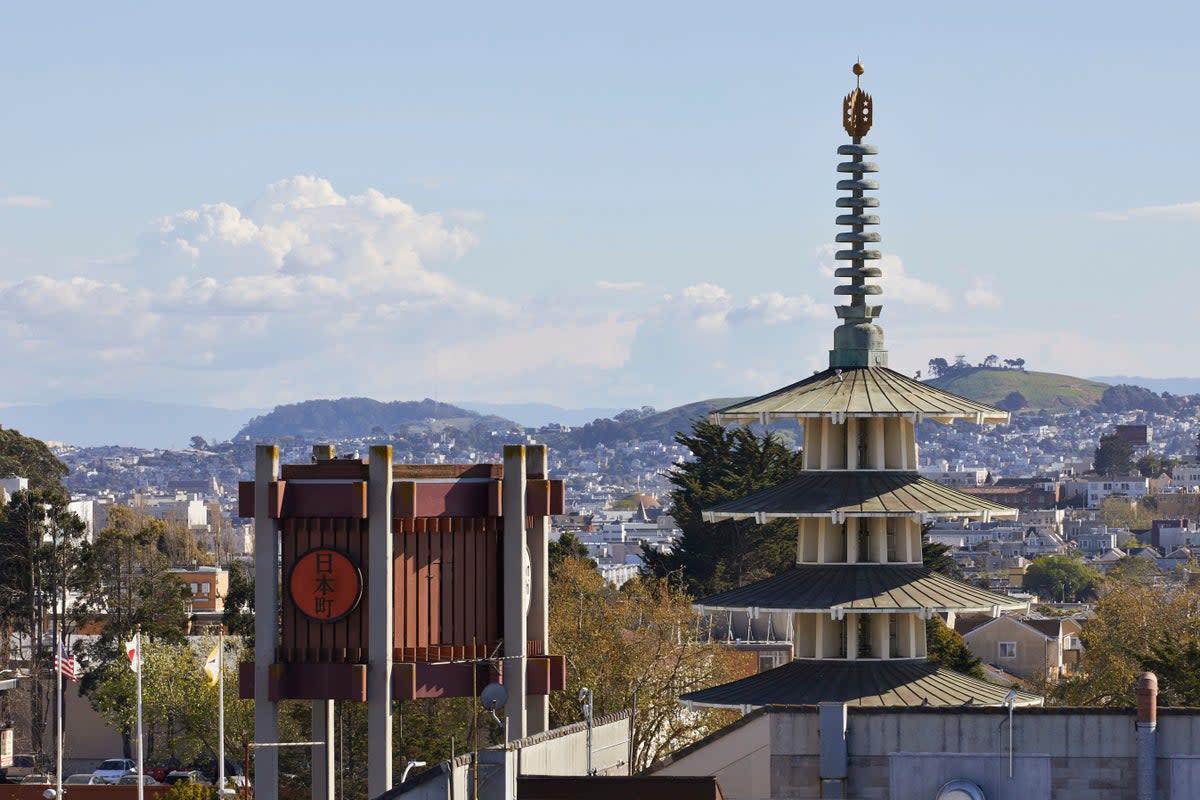
Our microguides series is inspired by the slow travel movement, encouraging travellers to relax their pace and take a deep dive into one particular neighbourhood in a well-loved city. Rather than a whirlwind itinerary which aims to hit up every must-see attraction, these compact, close-up guides encourage you to zone in, take your time and truly explore like a local
There are at least 50 Chinatowns across the US but only three Japantowns remain, all located on the country’s Pacific coast. San Francisco’s is the oldest; Japanese Americans have been populating this six-block neighbourhood in the Western Addition district for more than a century, and in that time have done an impressive job of recreating a small slice of their motherland in northern California.
More sedate and secluded than SF’s Chinatown a couple of miles to the east, Japantown still packs a hefty cultural punch, keeping its national spirit alive not just with annual community events and festivities but every day, in its authentic outlets, where you can feast on the best ramen and shabu-shabu in the city, and buy your fill of imported manga, anime and all things kawaii (cute).
More recently, Japantown has led the charge for San Francisco’s recovery from Covid, being one of only three neighbourhoods reporting higher sales tax revenue today than before the pandemic – despite suffering terribly throughout.
Now is a better time than ever to visit this thriving, underrated district of a city that is still getting back onto its feet. Here’s how to make the best of your time here.
Do
Peace Plaza
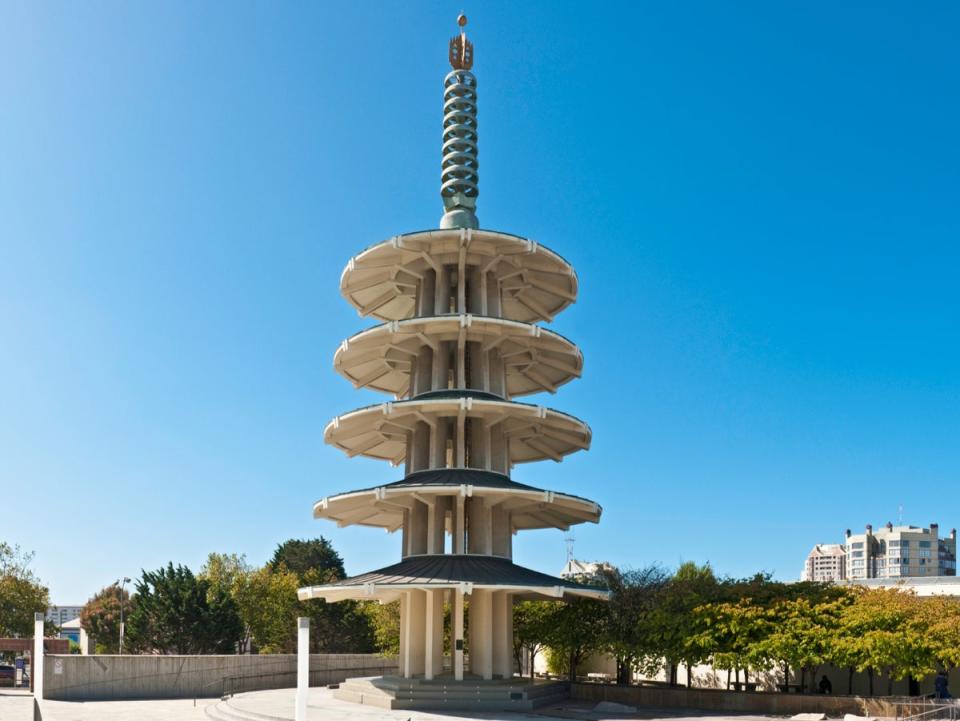
This focal point at the heart of Japantown is its main gathering space, from which the rest of the neighbourhood radiates. It’s a serene pedestrianised square, somewhere to relax and people watch, but it really comes alive during community celebrations and festivals that draw people from all over the city. Towering over the plaza is the Peace Pagoda, an impressive five-tiered structure reaching 100ft, presented to SF in 1968 by its sister city, Osaka, and inspired by a series of pagodas in Japan’s ancient capital, Nara.
Read more on US travel:
Kabuki Springs
A traditional, tranquil Japanese spa and bathhouse on an unassuming corner of Japantown, this oasis from city life makes sure you can properly switch off, with its dim lighting, ambient music and strict no-chat policy. Tuesdays are the only all-gender days when bathing suits are required, otherwise, there’s an even split between men-only and women-only days, when you are free to walk around fully nude if you so wish. kabukisprings.com
Cherry Blossom Festival
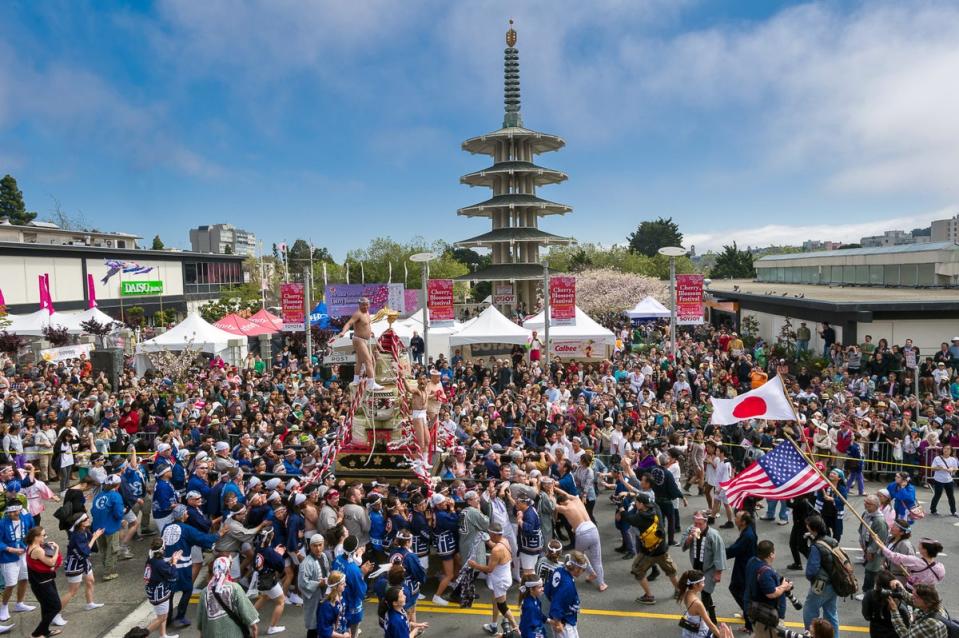
Japantown events don’t get bigger than this springtime celebration of the blossoming of cherry trees. Running over two weekends every April, the festival showcases a multitude of Japanese customs, from ikebana (flower arranging) to traditional musical performances on shakuhachi (bamboo flutes) and koto (harp-like instruments), before a popular grand parade finale. Outside of the neighbourhood, there are more – and finer – specimens in the Japanese Tea Garden in Golden Gate Park. sfcherryblossom.org
Eat
Sasa
This sleek and mellow venue is a haven from the hubbub of its Japan Centre mall location, tucked away on the top floor, and one of the best sushi spots in Japantown (if not the whole city). Its menu standouts are the nine-piece “mystery box” of the chef’s choice of assorted sashimi, served in a very Instagrammable wooden box, or the multi-course omakase, featuring 10 items of signature sushi – one for if you’re particularly hungry. sasasf.com
Udon Mugizo
Not only one of the few udon restaurants in town whose noodles are handmade in-house, here they are made in full view of passersby in a front window, which makes waiting outside a bit more interesting, should there be a queue. With myriad different udon dishes to choose from once inside, the most popular is the signature udon special, topped with cod roe, kaiware and nori seaweed. mugizo-us.com
Edomasa
A recent addition to Japantown’s buzzy food scene is a legendary 100-year-old Tokyo yakitoria that actually transplanted itself from the Japanese capital in 2023 after being forced to close there, and has since become a magnet in its new community, many of whom remember it from home. Its flagship set menu, comprising skewers of different chicken cuts with paitan soup and seasoned rice, offers exceptional value – expect queues at weekends and weekday evenings. edomasa-us.com
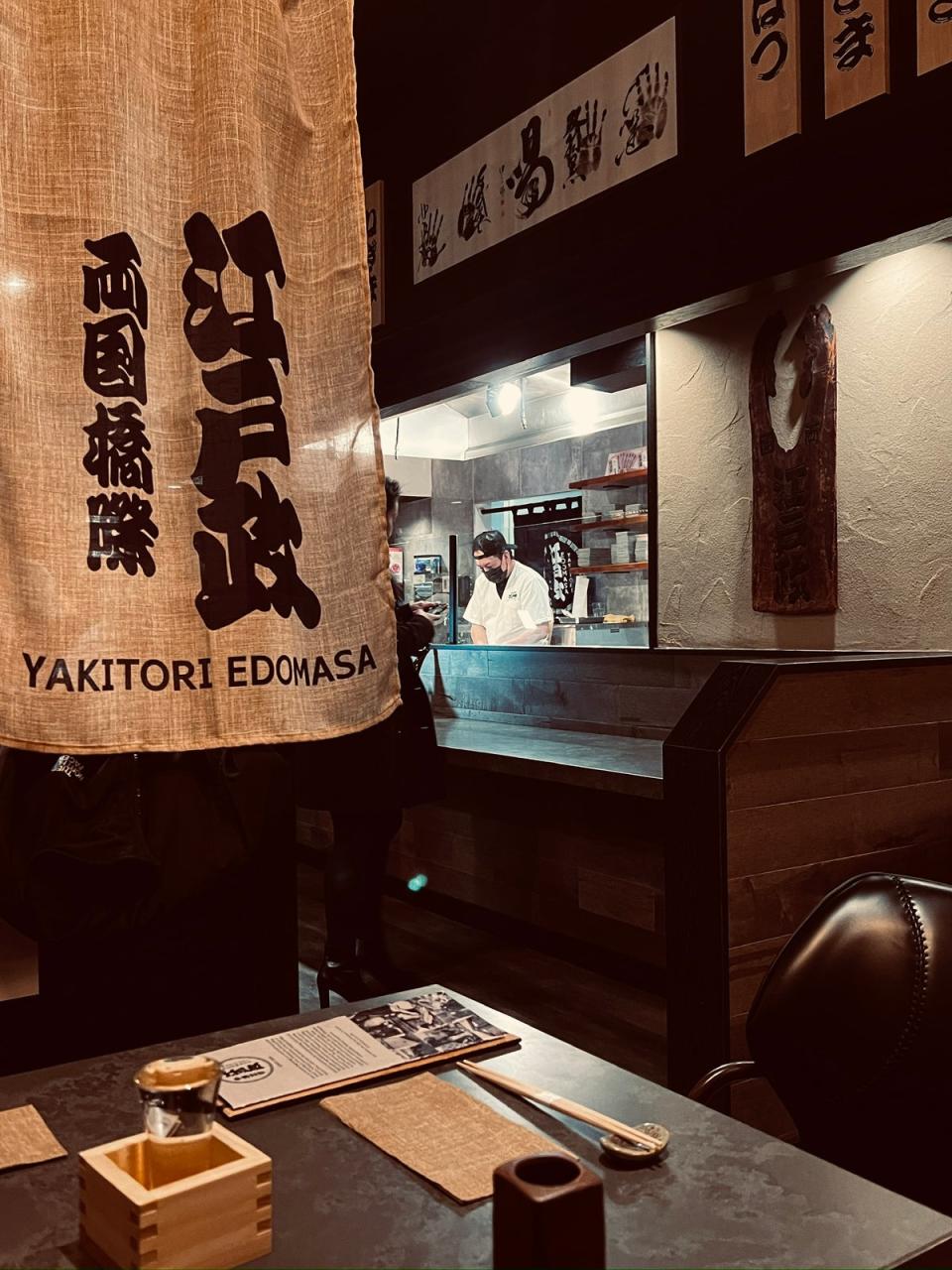
Drink
Festa
If karaoke is your bag, this intimate bar in the Kinokuniya Mall offers a music menu of more than 120,000 songs, including tracks in Chinese, Korean and Spanish, as well as Japanese and English. What better way to appreciate one of Japan’s latter-day cultural traditions that has taken over the western world than right here in SF’s Japantown with a glass (or bottle) of sake from Festa’s extensive menu. festalounge.com
On the Bridge
This quirky and informal family-run bar and restaurant is as well known for its bookshelf manga collection as it is for its Japanese beer and sake menu, and an idiosyncratic menu of east-west fusion foods like katsuobushi pizza and sansai spaghetti. It’s randomly also a favourite stop-off for punk rock icon Patti Smith whenever she’s in this neck of the woods. onthebridgesf.com
Shop
Paper Tree
The Mihara family, who opened this origami and stationery shop in the middle of Japantown in 1968, were the first people to import origami paper into the US, and also published America’s first book on the ancient craft. Today the outlet acts not just as a store but as a permanent rotating exhibition of paper sculptures from some of the world’s top folders, as well as offering personal origami classes, which saw a considerable uptick in demand during lockdown (online, of course). paper-tree.com
Kinokuniya Bookstore
Another stalwart of the neighbourhood since the late 1960s, this two-floored bookstore is a repository of all things manga and anime, encompassing comics, books, DVDs, T-shirts, toys and tote bags. Upstairs you can browse a broad range of Japanese and English literature, and also attend regular readings and signings from genre authors and illustrators. usa.kinokuniya.com
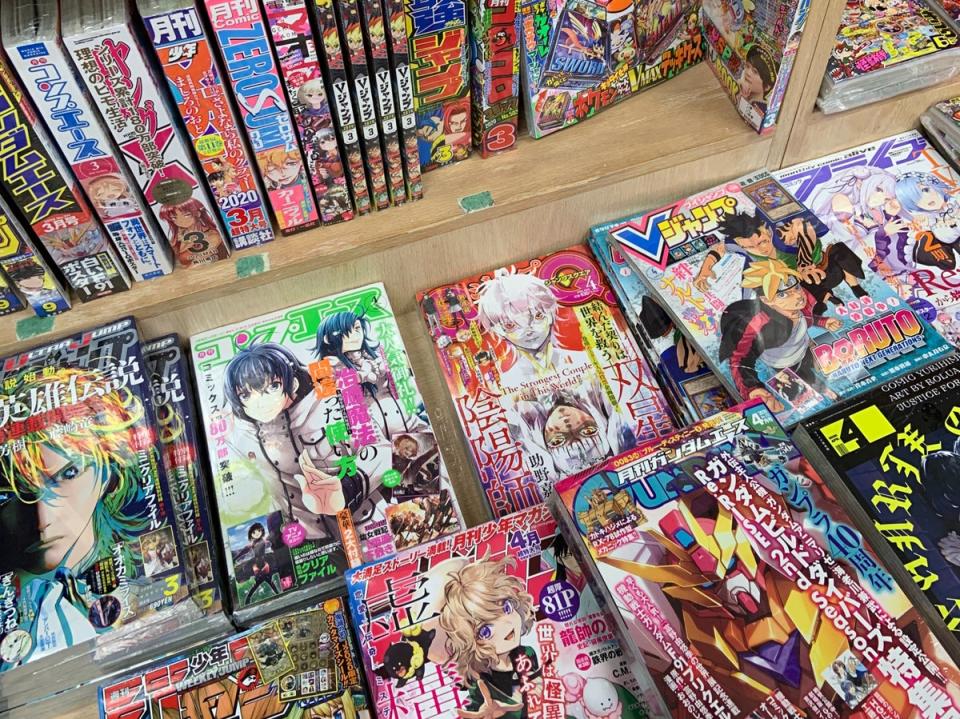
Soko Hardware
This store opened its doors in 1925, and since then has been supplying this part of the city with all the Japanese-inspired and imported hardware, kitchenware and home products locals could wish for, from butsudans (mini Buddhist shrines) to taiyaki pans for making fish-shaped cakes. And what’s great about stores like this is that they double up well as a souvenir shop, for picking up a unique practical item over a knick-knack. sokohardware.com
Stay
Hotel Kabuki
There are only two hotels within Japantown’s boundaries, with Hotel Kabuki being the larger of the pair, housing a sizeable gym with a yoga studio and meditation garden outside, while inside contemporary Japanese art and calligraphy adorn dramatic dark-grey walls in the bedrooms. Impressive views over Golden Gate Park are on offer if you’re fortunate enough to bag a south-facing room.
Hotel Enso
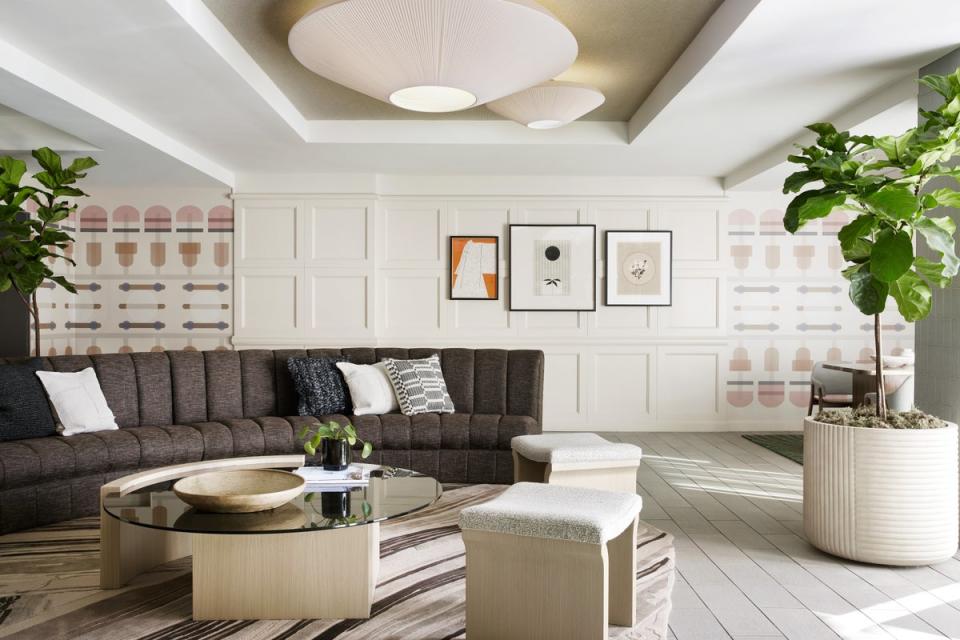
This venue provides more of a minimalist Zen, blending traditional Japanese sensibility with contemporary west-coast cool. There are silky kimono-style robes in the bedroom and a vending machine of Japanese soft drinks in the lobby, which is also the setting for social hours for guests every evening, with complimentary wine provided. Other hosted events include sake tastings and R&B yoga, while the outdoor courtyard offers a selection of lawn games, so you’ll not be short of things to do during your stay.
Read more on the best USA hotels

